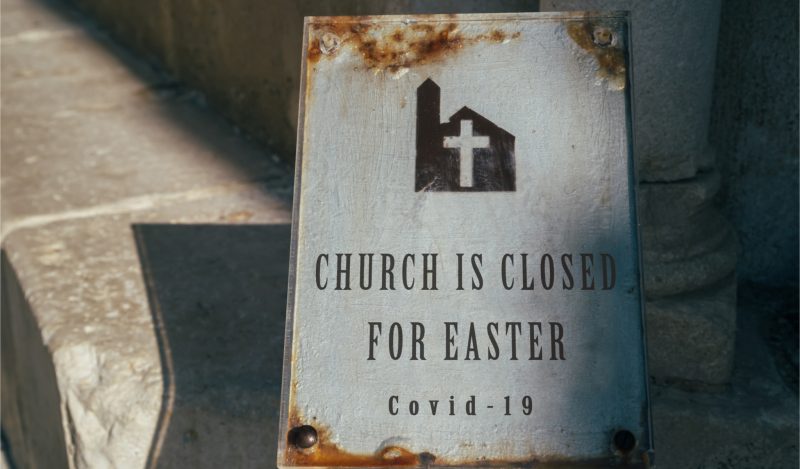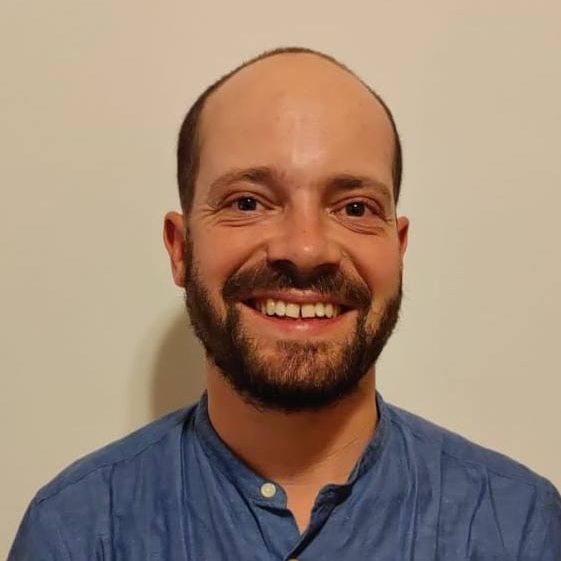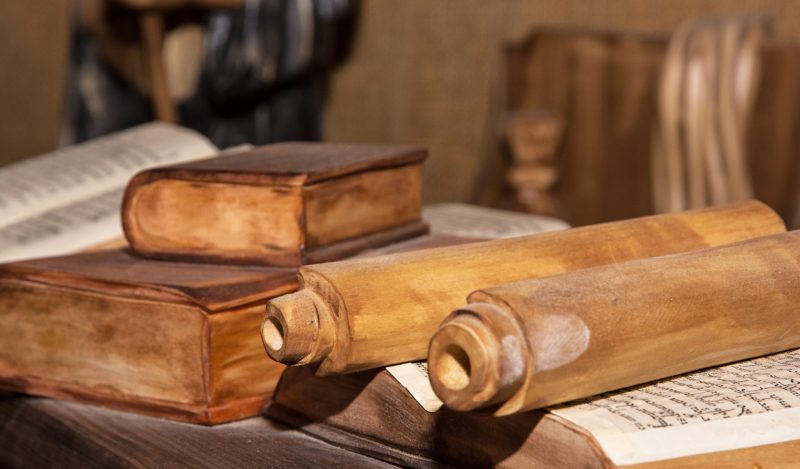Religious institutions play a key role in our society – not only are they places where people come to mark life events, build community, and connect with others, they also play a historic role in protecting the vulnerable and, in many cases, providing sanctuary for the homeless or for people who are otherwise marginalised. They are also places where intergenerational relationships are fostered and ideas discussed.
At a time of crisis, such as during a pandemic, is exactly when such institutions are even more needed than ever, and when faced with uncertainty, many seek the comfort and support of religious institutions.Yet during the pandemic and the lockdowns, religious institutions were only too willing to shut themselves down, close their doors, and therefore abandon those that depended on them.
Hospital chaplaincy services were wound down, weddings forbidden, funerals limited, mourning rituals criminalised. With a few notable exceptions, the main institutions of religious practice fully internalised the lockdown ideology and reaffirmed it within their respective communities. Many religious institutions locked down to an even more zealous state than was suggested by the government.
Historically, however, religious institutions have had an essential safeguarding impact against the limits of power of government. Churches could provide sanctuary to those targeted by the criminal justice system, free from the sometimes oppressive nature of state criminal law. Yet during the lockdowns, most places of worship provided no such sanctuary, and rather imposed the government lockdown ideology on themselves in full.
However, there are numerous lessons in religious scriptures, from all faiths, of the importance of not abandoning the vulnerable, and not being fearful of the sick. Jesus is described as mixing with the sick and those who have leprosy, curing people with infectious disease, and being willing to go out and meet those who were marginalised, despite it having been a social taboo to touch the ill.
In the coming weeks it is the Jewish High Holidays – the most important, in spiritual terms, time of the year in the Jewish calendar. The lessons abound from the themes of the Jewish holidays, and how we can use them to make sense of a society that leans to authoritarianism and unchecked government power, yet few seem willing to tease out this learning from the High Holiday texts, and instead continue to voluntarily ‘lock down’, with some synagogues refusing to meet in-person at all, and others insisting on those attending to be vaccinated and tested.
On Yom Kippur, the day of atonement and the holiest day in the Jewish calendar, the liturgy encourages us to think about the absolute uncertainty of our own mortality, that we do not know what the year ahead brings us, whether we will live, and whether we will die. This is part of the human experience.
The task of the holiday, difficult as it may be, is in part to accept the limits of that which is under our control. We cannot remove risk from our lives, to achieve some sort of immortality – and to attempt to do so, in theological terms, is tantamount to idolatry. It is the equivalent of investing our agency in a false power, in pursuing goals that cannot be achieved, and will take us down the dead-end of lockdown isolationism, and sacrificing some of the basic tenets of individual and communal life in the process.
Whether you are theologically inclined, or if you prefer to look elsewhere to find meaning and connection, the willingness of such institutions to subsume themselves to state authority, rather than adopt a questioning stance of advocating for their value, has revealed a weakness in the strength of community structures in our society. The human impulse for sacrifice – whether that is sacrificing ourselves, or sacrificing others, is strong.
The innate impulse for human sacrifice, for treating ourselves and others as objects, that can be harmed in order to achieve some other goal, needs to be safeguarded against. However, too often over the last eighteen months, we have treated other humans as objects, devoid of their own needs and desires, sacrificed in the pursuit of the false unachievable goal of maximal suppression of viral transmission.
This list of sacrifices is long, but includes such actions as incarcerating older adults in care homes, removing access to education from young people, and restricting rights of migrants to cross borders.
The very purpose of many of the community organisations – charities, political parties, religious organisations – is to advocate for different aspects of our society so that people are not treated as objects, with those with the least agency discarded in the pursuit of particular goals. Yet this process has manifestly failed, with many community organisations instead acting as a simple extension with which to further lockdown ideology, even when it is in direct opposition to the very reasons why the organisations exist in the first place.
As we move forward from the pandemic, it is vital that religious communities – and other institutions – rediscover their historic role in safeguarding power and protecting vulnerable and marginalised people and communities, in order to prevent lockdown isolationist ideology staying with us or returning in future crises.
In Deuteronomy 30:14 it is written “No, the thing [commandments] is very close to you, in your mouth and in your heart, to observe it”, with the suggestion that law, or perhaps power and authority more generally, needs to be held close to us, in order to be lived out such a way that remains true to the ethical intentions that underpin any legal system.
This principle, of holding the law close to us, can be applied through both a power relations and through a rights-based framework. In terms of power relations, it speaks to the necessity of ensuring that the power and authority is not held with some distant elite political leaders, or with an institutional leadership class that are largely removed from the realities of every day existence for most people, but rather the decision-making should remain with the general public, as individuals and as communities, as much as possible – and to do so, reduces the risk of coercive authoritarian type governance.
With regards to a rights-based framework, it instructs us of the reality that the law, and its protections, needs to apply to every single one of us, and not to be abandoned for people who are marginalised in some way.
Religious institutions, and other community structures, are failing if they are unable to recognise the harmful consequences of declaring themselves non-essential and investing all of our authority into power structures that are seeking unachievable goals, the pursuit of which will lead to the sacrifice of the interests and rights of so many.
Far from being non-essential, the learning from this season’s High Holidays is fundamental – that we have to reckon with our mortality, that the authority resides with us, and that the human impulse to sacrifice others, to do away with other people’s rights, is strong but needs to be resisted. Through holding the power structures close to us and protecting our structures of community, we can get to a position where we respect one another in such a way that protects us against the trap of lockdown isolationism.
Published under a Creative Commons Attribution 4.0 International License
For reprints, please set the canonical link back to the original Brownstone Institute Article and Author.









